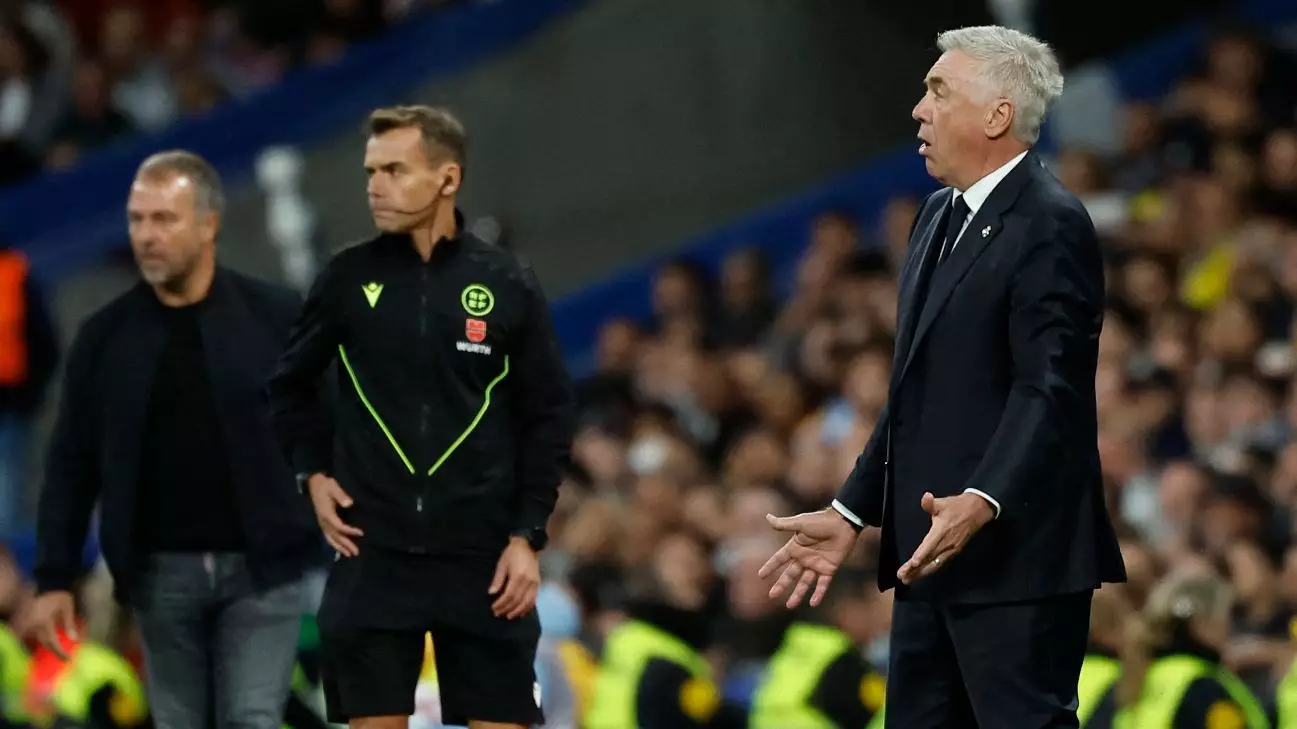The recent El Clásico match held at the iconic Santiago Bernabéu Stadium marked not only a decisive victory for FC Barcelona over Real Madrid but also served as a pivotal moment in the current La Liga season. With a final score of 4-0, Barcelona showcased their superiority as they dismantled Madrid’s defenses, prompting discussions around the nature of celebrations, respect, and sportsmanship in football. Leading the charge for Barcelona was Robert Lewandowski, whose two goals highlighted his prowess on the pitch. Additionally, young prodigy Lamine Yamal became the youngest scorer in Clásico history, emphasizing a new era for the Catalan club.
This stunning win did more than just bolster Barcelona’s position at the top of the La Liga table, creating a six-point cushion over their archrival; it also ended Madrid’s impressive 42-game unbeaten streak in the league. Beyond the brilliance displayed by Barcelona’s attacking unit, it was the exuberant celebrations on the bench, particularly after Raphinha’s goal, that caught the attention of Real Madrid’s coach, Carlo Ancelotti, sparking a debate about sportsmanship.
Post-match, Ancelotti expressed his discontent regarding how Barcelona’s team celebrated their fourth goal right in front of the Madrid bench, calling out the behavior of one of Hansi Flick’s assistants. “The problem was with the assistant, not with Flick,” Ancelotti clarified in the press conference. He noted that a lack of class was shown in the way emotions were displayed during a fiercely contested match. In response, Flick, the Barcelona coach, maintained a level-headed approach, suggesting that emotions often run high in such a significant match and would eventually be addressed between the two coaches.
Ancelotti’s comments reflected the heightened stakes of El Clásico and the emotionally charged atmosphere that often accompanies it. The deep rivalry, fueled by history and intensity, elevates what is already a high-pressure encounter into a crucible of passion and pride. For Madrid, the loss was not only about points but also about maintaining their legacy against long-time adversaries.
Real Madrid’s Second-Half Collapse
As the match progressed, it became apparent that Madrid struggled to regain control in the second half. What initially appeared to be a competitive contest turned into a rout after Lewandowski’s quickfire goals ignited Barcelona’s momentum. Even prior to this, Ancelotti was optimistic following a balanced first half, yet the outcome of the game left him questioning his side’s clinical abilities. “Until the goal, it was an even game,” he said. “But once they scored, it drained the energy from us.”
The Madrid players, particularly striker Kylian Mbappé, faced immense scrutiny post-match, as he was caught offside an astonishing eight times—tying a dubious record. The tactical approach implemented by Barcelona to employ a high defensive line capitalized on Madrid’s attacking weaknesses, disrupting their rhythm and creating scoring opportunities for themselves. Ancelotti acknowledged the risks taken with Mbappé’s positioning, revealing a tactical miscalculation that ultimately backfired against a confident Barcelona side.
A Turning Point for Barcelona and Flick
The emotional high of the win against Madrid came merely days after Barcelona’s impressive 4-1 victory over Bayern Munich in the Champions League, showcasing their current form under Hansi Flick. The German coach, though elated, tempered his enthusiasm with a reminder that improvement is an ongoing journey. “Today was not easy,” said Flick. “But we’re in good flow, and it’s essential to keep pushing forward.”
Flick’s acknowledgment of the team’s performance reflects not only confidence but also a perspective on continuous improvement, which is crucial in both league and European competitions. The juxtaposition of Barcelona’s soaring success against Madrid’s disappointing outing highlights the unpredictability of football, where fortunes can shift dramatically within a short timeframe.
For Real Madrid, the road ahead involves introspection and resilience. Ancelotti emphasized the need to learn from this defeat, likening the situation to their previous setbacks. He insisted they are capable of bouncing back, citing last season’s performance following similar disappointments. “We can’t give up, we just have to learn,” he urged, stressing that progress and recovery are integral parts of competitive sports.
The Clásico’s aftermath serves as a reminder that, in football, emotions run high, and each game carries weight far beyond the scoreline. As Barcelona revels in their glorious performance, Real Madrid must channel their disappointment into motivation to reclaim their stature in La Liga. The season is far from over, and both clubs will undoubtedly continue to generate headlines as they battle for supremacy in one of football’s grandest rivalries.


Leave a Reply